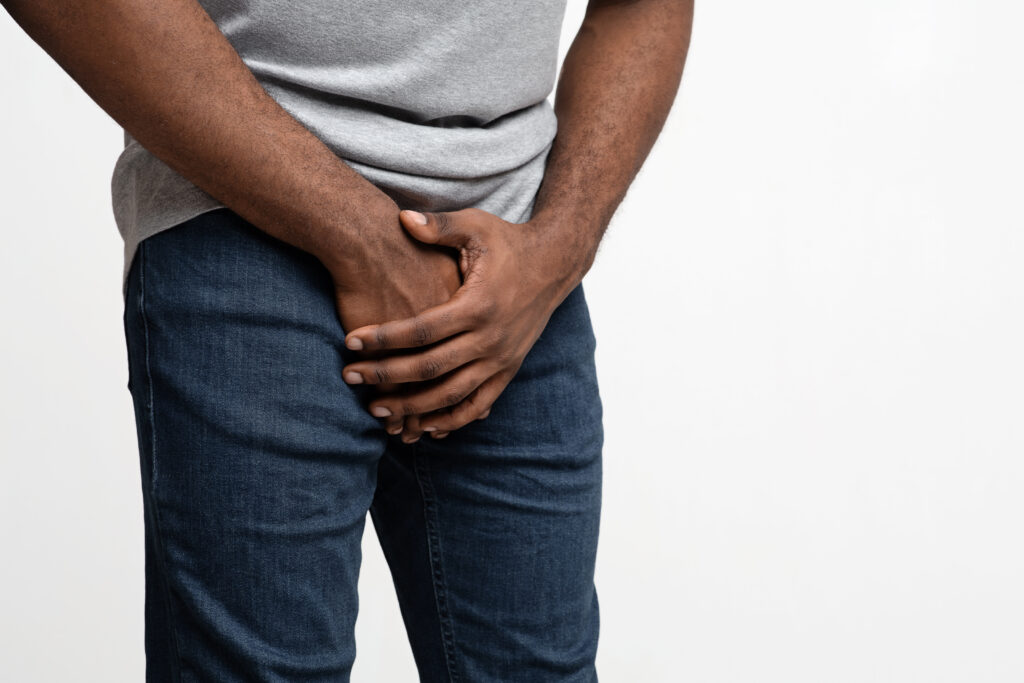Plan Your Visit
Hours
Mon–Thur: 8am – 7pm
Friday: 8am – 5pm
Saturday: 8am – 12pm
Sunday: Closed
Phone
After-Hours Immediate Care: (316) 261-8825
Fax
Clinical Fax: (866) 514-0974
Dental Fax: (888) 662-7106
Dec 09, 2022
Sexually transmitted diseases (STDs) and infections are contracted through sexual contact. The viruses, bacteria, or parasites that cause STDs can transmit from person to person through blood, semen, vaginal fluids, or other bodily fluids. They are very common and easy to transmit unknowingly. A perfectly healthy man or woman can have an STD and not experience a single symptom in their life.
In 2018, the CDC estimated 1 in 5 people living in the United States had a sexually transmitted infection. They estimated there were nearly 68 million STIs on any given day in 2018 (prevalent STIs), 26 million newly acquired STIs in 2018 (incident STIs), and nearly one in two incident STIs were acquired by people aged 15 to 24 years old.
If you are sexually active, especially if you have multiple partners, it’s very important that you are tested for STDs on a regular basis.
There are many types of STDs (also called sexually transmitted infections or STIs). The list of STDs is pretty lengthy. Fortunately, most are treatable or even curable with medication and proactive testing. Here’s a list of some of the most common STDs:
Chlamydia and gonorrhea can cause PID and infertility, but both are preventable. Chancroid and scabies are also forms of STDs.

Aside from abstinence, which is the only 100% effective method for avoiding STDs, practicing safe sex is key. If abstinence isn’t a method you want to try, consistent and correct condom use is a highly effective method for reducing STD transmissions.
There are also vaccinations available to protect you from HPV (human papillomavirus) and Hepatitis B. Ask your physician if you should get vaccinated.
HIV causes AIDS and interferes with the body’s ability to fight infections — having an STD can increase your chances of getting HIV.
Talk to your partner! Ask questions about their sexual history and learn how often they get screened for STDs. Getting tested can be a little scary at first. If it’s something you can encourage each other to do together, it’s not nearly as intimidating. And if you can agree to be in a mutually monogamous relationship with this person, even better! Access to testing and screening is discrete, easy, and non-invasive. Limiting the number of sexual partners you have — and frequent testing — is an effective way of drastically reducing your chances of contracting an STD.

If you’re worried you might have an STD, rest assured that most can be treated or even cured with the help of your physician. Getting tested is easy and oftentimes free. Here are some more common symptoms you should watch out for:
Other symptoms may present as a rash, stis, a bump with or without pain, discharge from the vagina or penis, itching, weight loss, and/or abnormal feelings (or sweat) in the groin area.
All of these symptoms can be easily mistaken for things that aren’t STDs, like pimples, urinary tract infections, or yeast infections. Getting tested is the only way to be positive about what you’re dealing with. Your doctor will be able to advise which test you should take and if there is a treatment that fits your needs.
If you’ve had sexual contact with someone and notice any of these signs, talk to your physician about getting tested. Symptoms can come and go, but that doesn’t mean the STD is gone. It’s not unusual for symptoms to be so mild, you might not even notice them at times. You should still see a doctor or nurse if you notice anything that feels off.
Most STDs can be cured with medication and and intervention program. STDs that can’t be cured often have treatments to reduce symptoms and can lower your chances of passing the STD to anyone else in your community. The sooner you can get tested, identify your infection, and become educated about what you have, the faster you can be proactive at protecting yourself and your partner(s).
STDs that are caused by bacteria are typically easier to treat. Viral infections can be managed, but aren’t always curable. If you are pregnant and have an STI, getting treatment right away can prevent or reduce the risk of your baby becoming infected. If you are trying to self-diagnose by searching the internet, it is best to contact a health professional instead. A health profiessional, such as your doctor, can provide structural evidence about the issue, give advice, and help keep you from reaching your emotional limit by providing treatment.
STD treatment will typically focus one of the following, depending on the infection:
Antibiotics can cure many sexually transmitted bacterial and parasitic infections, including gonorrhea, syphilis, chlamydia and trichomoniasis. It’s important to finish the whole prescription. If you have a hard time finishing prescription antibiotics, ask your doctor if there are alternatives that take less time and commitment to finish. After you’ve finished the antibiotic, it’s important to abstain from sexual activity for seven days. It’s also strongly encouraged to get tested again three months afterwards to make sure the medication resolved the infection completely.
Antiviral drugs will usually be prescribed if you have herpes or HIV. This will help lower your recurrences of herpes if taken daily as suppressive therapy. But remember, just because you’re not showing physical symptoms, it’s still possible to transmit herpes to your partner. Antiviral drugs can keep HIV infections at bay for a long time. You will still carry the virus and pass it to your partner, but the risk is much lower. Work with your physician to find the treatment program that is best for you. Life with herpes or HIV can be easily managed as long as you’re working with your doctor and taking your medications exactly as prescribed.
Make an appointment today at HealthCore Clinic to get screened and tested for STDs in Wichita, Kansas. It’s our responsibility as sexually active humans to protect ourselves and others from STDs and infections. Here are some guidelines you can follow to make sure you’re doing your part:
Getting tested for STDs can be uncomfortable, especially if you don’t know what to expect. Most tests are non-evasive and pain-free — results can be turned around quickly. If you have questions about this process, give us a call. At HealthCore, we treat all of our patients with the utmost respect and will happily guide you through the process of starting a testing or treatment program that is right for you.
Mon–Thur: 8am – 7pm
Friday: 8am – 5pm
Saturday: 8am – 12pm
Sunday: Closed
After-Hours Immediate Care: (316) 261-8825
Clinical Fax: (866) 514-0974
Dental Fax: (888) 662-7106